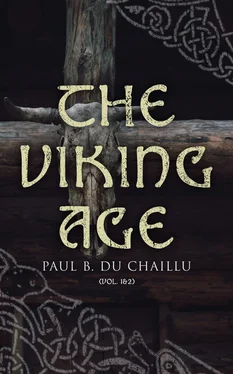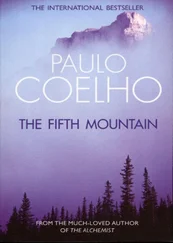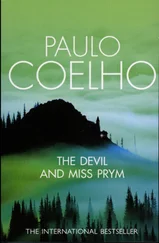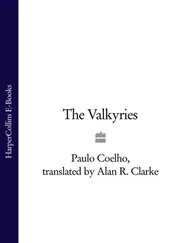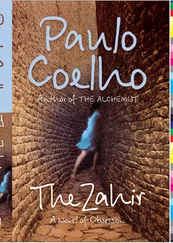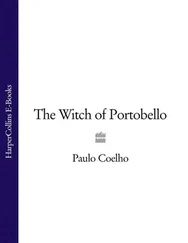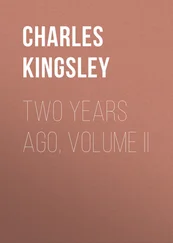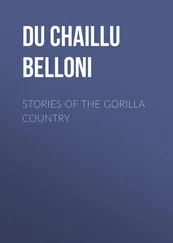The host of Dvergar
From the bloody surf 46
And from the bones of Blain.
There did Modsognir 47
The mightiest become
Of all Dvergar,
And Durin next to him;
They two shaped
Many man-likenesses
In the ground,
As Durin has told. 48
* * * * *
It is time to reckon
Down to Lofar,
For mankind (Gónar),
The Dvergar in Dvalin’s host, 49
Those who went
From the stone-halls,
The host of Aurvangar,
To Jöruvellir (battle-plains).
* * * * *
Until out of that host 50
To the house 51
Came three Asar
Mighty and mild;
They found on the ground
Ask and Embla,
Helpless and fateless
They had no breath,
They had no mind,
Neither blood nor motion
Nor proper complexion.
Odin gave the breath, 52
Hœnir gave the mind,
Lodur gave the blood
And befitting hues.
(Völuspa.)
Finally the Völva describes the end of the world.
Eastward sat the old one
In Jarnvid, 53
And there bred
The brood of Fenrir;
Of them all
One becomes
The destroyer of the sun
In the shape of a Troll.
He 54is fed with the lives
Of death-fated men;
He reddens the seat of the gods
With red blood;
The sunshine becomes black
After the summers,
And all weather woe-begone.
Know ye all up to this and onward?
The herdsman of the Jötun woman,
The glad Egdir,
Sat there on a mound
And struck a harp,
A bright-red cock,
Called Fjalar,
Crowed near him
In the bird-wood.
Crowed for the Asar
Gullinkambi (golden-comb),
He rouses the warriors
At Herjafödr’s (host-father);
But another crows
Under the ground,
A dark red cock, 55
In the halls of Hel.
Garm barks violently
Before the Gnipa cave;
The fetters will break
And the wolf will run;
She (the Völva) knows many tales.
I see further forward
To the doom of the powers
The dark doom of the gods.
Brothers will fight
And become each other’s slayers;
The sons of sisters will
Break blood ties.
It goes hard in the world,
There is much whoredom,
An age of axes, an age of swords;
Shields are cleft;
An age of winds, an age of wolves,
Ere the world sinks;
No man will spare
Another man.
The sons of Mimir are moving
But the end draws near,
By the sound of the ancient
Gjallarhorn.
Heimdall blows loud,
The horn is aloft;
Odin talks with
The head of Mimir.
Shakes the standing
Ash Yggdrasil;
The old tree groans,
And the Jötun (Loki) breaks loose;
All are terrified 56
In the roads of Hel
Before the kinsman of Surt
Swallows it.
How is it with the Asar?
How is it with the Alfar?
All Jötunheim rumbles,
The Asar are at the Thing;
The Dvergar moan
Before the stone doors,
The wise ones of the rock wall 57
Know ye all up to this and onward?
Now Garm barks loud
Before Gnipa cave;
The fetters will break,
And the wolf will run.
Hrym 58drives from the east,
Holds his shield before him.
The Jörmungand 59writhes
In Jötun wrath;
The serpent lashes the waves,
And the eagle screams;
The pale beak tears the corpses;
Naglfar 60is loosened.
A keel (a ship) comes from the east,
The men of Muspell
Will come across the sea,
But Loki is the steerer; 61
All the monsters
Go with the wolf,
The brother of Býleist (Loki)
Is in the train.
Surt comes from the south
With the switch-harm (fire);
The sun of the gods
Flashes from his sword;
Rocks clash,
The Jötun women stagger;
Men walk the road of Hel;
Heaven is rent asunder.
Then comes the second 62
Sorrow of Hlin,
When Odin goes
To fight the wolf;
And the bright slayer
Of Beli 63against Surt;
There will fall
The love of Frigg (Odin).
Now Garm barks loud
Before Gnipa-cave;
The fetters will break,
And the wolf will run.
Then comes the great
Son of Sigfödr (father of victory)
Vidar to slay,
The beast of carrion. 64
With his hand he lets
His sword pierce
The heart of the Jötun’s son, 65
Then his father (Odin) is avenged. 66
Then comes the famous
Son of Hlodyn (Thor);
Odin’s son
Goes to fight the serpent;
Midgard’s defender (Thor)
Slays him in wrath;
All men will
Leave their homesteads;
The son of Fjörgyn (Thor),
Walks nine paces
Reeling from the serpent
That shuns not heinous deeds.
The sun blackens, 67
The earth sinks into the sea;
The bright stars
Vanish from heaven;
The life-feeder (fire)
And the vapour rage;
The high heat rises
Towards heaven itself.
Now Garm barks loud 68
Before Gnipa-cave;
The fetters will break,
And the wolf will run.
(Völuspa.)
After the destruction of the world, a new one will arise.
She 69beholds rising up
Another time
An earth out of the sea,
An evergreen one.
The waterfalls rush;
Above an eagle flies
Which on the mountains
Catches fish.
The Asar meet
On the Idavöll (plain)
And talk about
The mighty earth-serpent
And there speak of
The great events
And of the old runes
Of Fimbultyr.
CHAPTER V.
MYTHOLOGY AND COSMOGONY— continued .
Table of Contents
Norse Cosmogony—Midgard, Asgard, and Mannheim—The Asar and Vanir—Thor and Tyr—The Goddesses—The Apples of Youth.
Where the mythical Odin ends in the Völuspa, if there is any ending to him, is impossible to tell; it appears that he came and built an earthly Midgard , 70according to the writer of the Later Edda who gives the tradition and belief of the people in his day.
Odin himself was originally a Jötun, and it would appear from the mythological literature of the North that, for some reason, he wished to found a new religion, and desired to proclaim himself chief and spiritual ruler over several, if not all the tribes before mentioned; this claim, from the account of the fights which took place, must have been hotly contested. In the history of the birth of every nation, something similar has taken place, and these struggles are always described with wonderful and often supernatural accompaniments. We are led to believe that a devoted band of followers attached themselves to Odin’s cause, and gradually others joined him; thus forming a community over which he was the leader. To protect themselves from their enemies, among whom, according to the Eddas, were included Jötnar and Thursar, &c., the Asar erected a wall round their country, and called the whole enclosed land Midgard.
In the centre of Midgard, Odin built for himself, his family, chiefs, and councillors, Asgard , 71called also Asaheim (home of the Asar), and Godheim (home of the gods). As , in the Northern language, afterwards denoted one of the gods, who in course of time were also deified, and to whom, as well as to Odin, sacrifices were offered.
Within the walls of Midgard, which encircled Asgard, was Mannheim , 72where Odin’s adherents dwelt, and hence the name of their country.
“They gave them clothes and names; the men they called Ash, and the women Embla. From them all mankind is descended, and a dwelling-place was given them under Midgard. In the next place the sons of Bör made for themselves, in the middle of the world, a burgh which is called Asgard, and which we call Troja (there dwelt the gods of their race), and thence resulted many tidings and adventures, both on earth and in the sky. In Asgard is a place called Hlidskjalf, and when Odin seats himself there in the high seat he sees all over the whole world, and what every man is doing, and he knew all things that he saw. His wife was Frigg, and she was the daughter of Fjorgvin, and from their offspring are descended the race which we call Asar , who inhabited Asgard the ancient, the realm that surrounds it, and all that race are known to be gods, and for that reason Odin is called Allfather” (Later Edda).
Читать дальше
